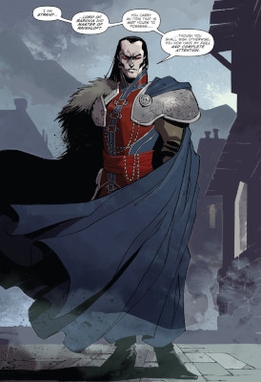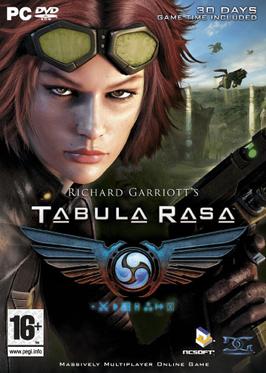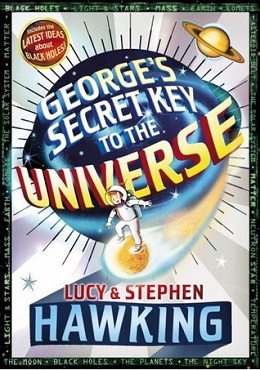Related Research Articles

Tabula rasa is the idea of individuals being born empty of any built-in mental content, so that all knowledge comes from later perceptions or sensory experiences. Proponents typically form the extreme "nurture" side of the nature versus nurture debate, arguing that humans are born without any "natural" psychological traits and that all aspects of one's personality, social and emotional behaviour, knowledge, or sapience are later imprinted by one's environment onto the mind as one would onto a wax tablet. This idea is the central view posited in the theory of knowledge known as empiricism. Empiricists disagree with the doctrines of innatism or rationalism, which hold that the mind is born already in possession of specific knowledge or rational capacity.

Richard Allen Garriott is a British-born American video game developer, entrepreneur and private astronaut.

Tracy Raye Hickman is an American fantasy author and designer of games and virtual reality (VR) experiences. He co-authored the original Dragonlance novels with Margaret Weis as well as numerous other books. He also designed and created role playing game material while working for TSR and has cowritten novels with his wife, Laura Hickman. He is the author or co-author of over 60 books.

Count Strahd von Zarovich is a fictional character originally appearing as the feature villain in the highly popular Advanced Dungeons and Dragons adventure module I6: Ravenloft. Later, this character and his world would be explored in follow-up modules, novels, and the Ravenloft campaign setting. Within this setting, Strahd is the first and best-known of Ravenloft's darklords. He is a powerful ancient vampire. He is also a master necromancer, a skilled warrior, and the unquestioned ruler of the domain of Barovia.

The Central United States is sometimes conceived as between the Eastern and Western as part of a three-region model, roughly coincident with the U.S. Census's definition of the Midwestern United States plus the western and central portions of the U.S. Census's definition of the Southern United States. The Central States are typically considered to consist of North Dakota, South Dakota, Nebraska, Kansas, Oklahoma, Texas, Minnesota, Iowa, Missouri, Arkansas, Louisiana, Wisconsin, Illinois, Michigan, Indiana, Ohio, Kentucky, Tennessee, West Virginia, Mississippi and Alabama.

Richard Garriott's Tabula Rasa was a MMORPG developed by Destination Games and published by NCsoft, designed in part by Richard Garriott. The game is a role-playing video game that blends certain shooter aspects into the combat system. It was officially released to retail on November 2, 2007, with customers that pre-ordered the game allowed access to the live servers from October 30, 2007. The development team released updates, called "Deployments," nearly every month following launch. The game required a monthly subscription.

The Republican Study Committee (RSC) is a congressional caucus of conservative members of the Republican Party in the United States House of Representatives. In November 2022, Representative Kevin Hern of Oklahoma was elected as the chair of the RSC, effective as of January 2023.
The International Association for Identification (IAI) is the largest forensic organization in the world. It was originally formed as the "International Association for Criminal Identification" in October 1915. Through the years it has grown into an educational and certification body with over 6,000 members worldwide.

The Republican Main Street Partnership is a nonprofit organization that raises funds to support politicians in the moderate wing of the Republican Party. The Republican Main Street Partnership does not advocate for legislation but offers networking and mentorship opportunities and provides a forum for discussion. The Partnership is affiliated with a super PAC called Defending Main Street. The Partnership is also affiliated with the Republican Main Street Caucus, a Republican congressional member organization that takes pragmatic conservative positions.
In the United States House of Representatives, the two major political parties maintain policy and steering committees. Their primary purpose is to assign fellow party members to other House committees, and they also advise party leaders on policy.

Action Pack, also called Universal Action Pack, was a syndicated programming block series of television movies and television series created by Universal Television that aired from 1994 until 2001. The Action Pack included two hours of various television series produced by Renaissance Pictures and distributed by MCA TV.

Stephen Hawking (1942–2018), a theoretical physicist, has appeared in many works of popular culture.

George's Secret Key to the Universe is a 2007 children's book written by Lucy and Stephen Hawking with Christophe Galfard. Upon its release, the book received mixed reviews, and was followed by five sequels, George's Cosmic Treasure Hunt in 2009, George and the Big Bang in 2011, George and the Unbreakable Code in 2014 and George and the Blue Moon in 2016 and George and the Ship of Time in 2018.

The following outline is provided as an overview of and topical guide to the United States:
The Congressional Western Caucus is a caucus within the United States House of Representatives composed of 62 members. Although it has historically been bipartisan, it is currently composed almost exclusively of Republicans. It was founded by then-representatives James V. Hansen (R-Utah), Bob Stump (R-Arizona), Joe Skeen and Barbara Vucanovich (R-Nevada) in 1993 during the 103rd United States Congress. Despite its name, the Congressional Western Caucus has members from outside the Western United States, including as far east as New York City and Puerto Rico.

The Amash–Conyers Amendment was a proposal to end the "NSA's blanket collection of Americans' telephone records", sponsored by Justin Amash and John Conyers in the US House of Representatives. The measure was voted down, 217 to 205.
This is a complete list of works by American science fiction and fantasy author Margaret Weis.

The Congressional Arts Caucus is a registered Congressional Member Organization for the US House of Representatives in the 115th Congress.
References
- ↑ Peter Leonard for The Associated Press (October 12, 2008). "US game designer blasts into space with DNA cargo". USA Today . Retrieved June 2, 2011.
- ↑ Immortality Drive from Gender and Technology 2009
- ↑ Immortality Drive: Stephen Colbert to have his DNA sent to space from Welt Online